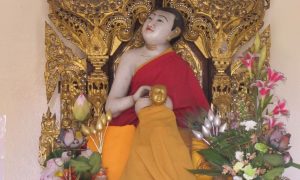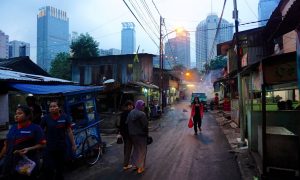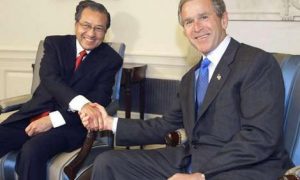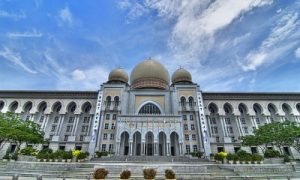Amarjit Kaur asks why are so many Malaysians of Indian heritage still so poor?
Indian migrant workers in Malaysia – part 1
In the first of this series Amarjit Kaur looks at the history of Indian migrants in Malaysia.
Who makes public policy in Malaysia?
The future prosperity of Malaysia will not be determined by who governs Malaysia but by how it is governed, writes Murray Hunter.
For God’s sake?
The Allah issue in Malaysia is related to the deeply entrenched Malay attitude towards the ability and right to name and summon spirits from the 'Malay spirit universe'.
Comprehensive electoral reforms in Malaysia
Tindak Malaysia, a community based electoral reform group provides the most comprehensive electoral reforms to date in Malaysia.
Upakhut in Malaysia
Arahant Upaggutta, who is believed to be still abiding in the ocean, has helped many people to overcome their troubles and problems.
KL112 and a new Malaysian identity?
In facilitating KL112, Pakatan Rakyat have created new myths that would solidify its presence in the memories or 'imagery' of Malaysians positively.
The big, bad Indonesian bogeyman
What then explains this xenophobia? One short explanation is the fear of losing hegemony, be it politically or religiously.
Measuring Barisan Nasional’s popularity
Electoral trends in Malaysia suggests that there has, is, and will always be latent discontent against the Barisan Nasional.
Two kinds of corruption
How corruption is conceptualised is critical in how it is dealt with. In Malaysia, the conventional views are patently misplaced.
The pathologies of Malay nationalism
Racism and bigotry are crutches or shields for the journey towards European type progress for the Malays, and ultimately Malay dignity.
The inexorable pursuit of an Islamic State
The aim of most Malaysians is not to turn this country into another repressive state that claims to rule with a mandate from God.
Once a Muslim, always a Muslim
Why do Muslims continue to believe and rely on legislation to get them to heaven?
Malaysia’s commodified Islam
In Malaysia, consumer habits aligned with aspirational piety form just another disciplinary mode to reinforce the boundary markers of identity.
Dominant parties in decline
Bridget Welsh provides an interesting analysis on why two of the world's longest serving ruling regimes are in decline.
Malaysia – revisiting the secular state debate
Ahmad Farouk Musa provides a cogent account of why a secular state is better than an Islamic state, and that Muslims can best practice their faith in a secular state.
In the shadow of strongmen
Southeast Asia shows us that there are two paths to democratisation – one of big bang change with reforms and another of simply muddling through.
Najib the Delayer
Is Najib Razak, Prime Minister of Malaysia, pursuing the military strategy of Roman dictator Fabius Maximus, who was known as Fabius the Delayer?
Mahathir created Pakatan Rakyat
Did Mahathir plant the seeds to the current opposition coalition through his draconian measures to, ironically, stifle the opposition?
Hobbism and Malaysia
Its not poor politics alone that is the reason for authoritarianism in Malaysia but Hobbism.
Marks of a good Malaysian leader
Tun Dr Ismail has been dead for 40 years but his legacy of inclusion and moderation, and honest and honourable leadership, is unforgettable and can yet inspire new generations of Malaysians from both sides of the political divide.
 Facebook
Facebook  Twitter
Twitter  Soundcloud
Soundcloud  Youtube
Youtube  Rss
Rss 




